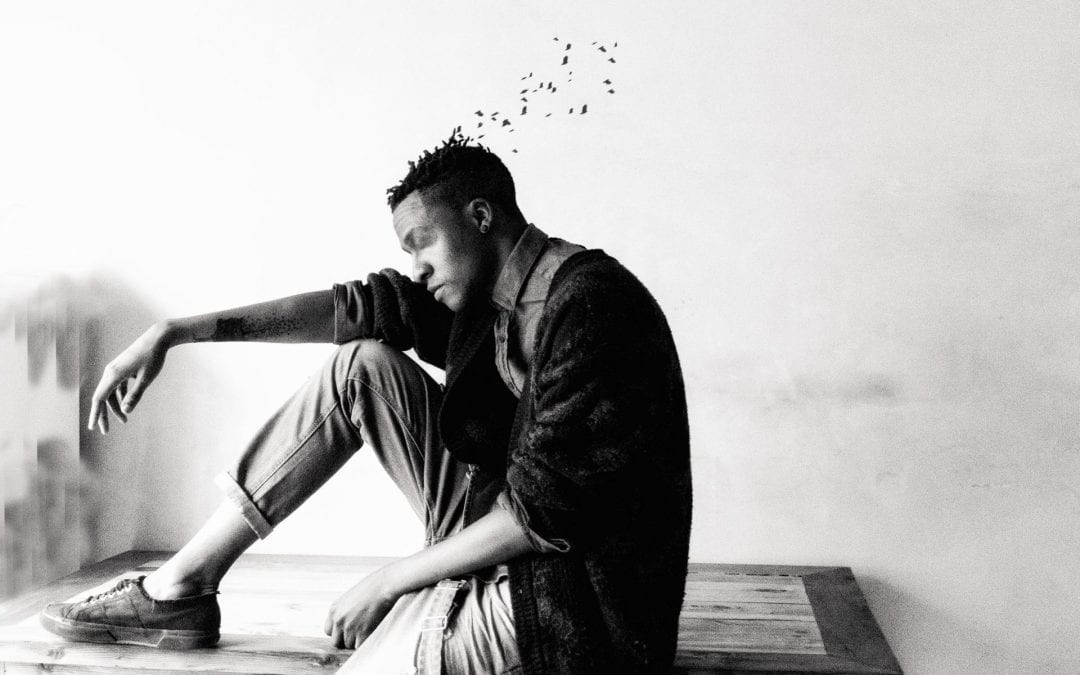Image: Tsoku Maela, ‘Sehlaga’, 2016
Parise Carmichael-Murphy (University of Manchester) considers how membership of the Black health and the humanities network is influencing her PhD journey.
The Black Health and the Humanities Network has been a welcome opportunity to connect my experience and identities with my research practice. As a second year PhD student in Education at the University of Manchester, the network has anchored my current PhD journey and is shaping what I hope to achieve next. My thesis explores the social determinants of adolescent boys’ mental health and wellbeing in education as part of the national HeadStart project that aims to improve the mental health and wellbeing of young people aged 10 to 16. Methodologically, I draw upon Black feminist thought and intersectionality.
The network has further exposed me to, and encouraged me to be cognisant of, Black women’s experiences within and beyond the academy. I am thinking with Audre Lorde, bell hooks, Patricia Hill Collins and Angela Davis. I find Kimberlé Crenshaw’s work on intersectionality particularly useful as it is rooted in legal studies, and my research evaluates education policy, language, law, and how they feed into education and employment discourse. My research examines how education, health, and social policy can perpetuate the myths and stereotypes of racialised and gendered communities. I intend to illuminate how policy often renders individuals, groups and communities that sit at intersections of race, class and gender ‘invisible’ and therefore sustains existing inequities. One example of this is exclusion practices in English schools, which are rooted in education policies that are based on a cultural deficit model that minorities individuals who do not conform to normative ideals of ‘the learner’. One consequence is the reproduction of systemic biases that contribute to the marginalisation of Black British boys.
During a creative session in the first workshop, ‘Towards a Black Medical Humanities’, Dr Lioba Hirsch encouraged us to engage with an ethics of care when we revisit archival materials. I produced the poem ‘They Came, We Saw, I Wondered’ which is now included as part of the ‘Decolonising the Archive’ series on the London School of Hygiene and Tropical Medicine’s blog. I wrote this poem in response to watching the Roads to Africa film, which included footage of the entomologist H.S. Leeson’s filming young women and girls from his car.
The second workshop ‘Health in Hostile Environments’ built upon themes we explored in the first workshop. Dr Caroline Bressey encouraged us to embrace reading ‘with and against the grain’ when revisiting historical texts, which involves thinking about the context we can and cannot know or acquire during the process of carrying out archival research. Together, the workshops have enabled me to recognise that I tend to read and write against the grain, a research practice rooted in my critical approach. For example, I am actively writing and citing Black women as a small but symbolic act to counter the systemic marginalisation of Black feminist thought from the academic canon.
In Dr Jenny Douglas’ workshop session we were reminded that intersectionality is about more than semantics, and that language is an important starting point for research. In Dr Eddie Bruce-Jones’ session that followed, we were also encouraged to think about language; for example, the difference between ‘police’ and ‘policing’, and to consider not only ‘objects’ or ‘things’, but the actions that sustain cultures of inequity. This has been particularly useful for me when thinking about how language is tied up with notions of care, and how education and social policy re-enact harmful discourses. Engaging with archives over the last two workshops has encouraged me to think beyond spoken dialogue and shifted my thinking toward embracing diverse mediums. I am more often asking myself questions like: what can I know from a picture? What can I not know from a text? As I approach my final year, I am thinking about how I can read and write with care in my thesis. One way that I am aspiring to think with care is by embracing reflexivity as a tool of accountability, as Black feminist scholar Patricia Hamilton explains. I think this is particularly suited to working with children and young people who often are positioned as in need of care or control, as Barry Goldson writes.
The interdisciplinary nature of the network is encouraging. So far, the network has given me time and space to engage with and apply disciplinary lenses in the broadest sense. Thinking, speaking, writing and talking together as a collective means that our individual perspectives are contextualised. The BHH network has enabled me to feel empowered by what we can achieve when we centre Blackness in our thinking and research.

